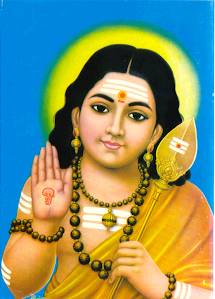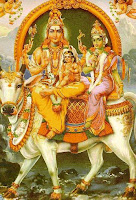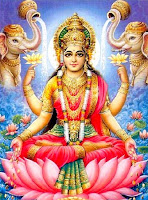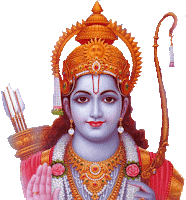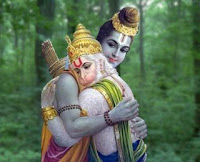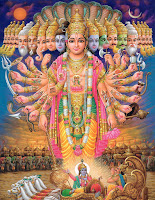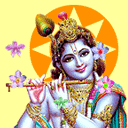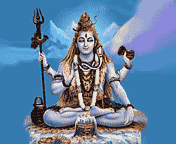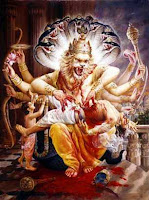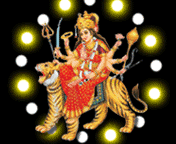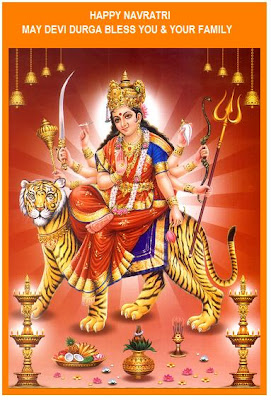According to most hindu scriptures, it is believed that life exists in cycles of time periods called ‘yugas’. There are 4 yugas according to Hinduism, namely – kritha yuga, Thretha yuga, Dwapara yuga and kali yuga. The present time period is kali yuga, which is rightly described as a time where evil gains full control of mankind. According to the ‘bhagavtha’, the relation between these yugas and our concept of years is as follows :-
One Human Year = One Day In Heaven (lets call it ‘one divine day’)
360 human Years = One Divine Year
Kritha Yuga = 4800 Divine years
= 17,28,000 Human years (nope, I didn’t get the zeroes wrong J)
Thretha Yuga=3600 Divine years
=12,96,000 Human years
Dwapara Yuga=2400 Divine years
=8,64,000 Human years
Kali Yuga=1200 Divine years
=4,32,000 Human years
This one set of yugas is together termed a ‘chaturyuga’.
Hence,
1 chatur yuga = Kritha yuga + Thretha yuga + Dwapara yuga + Kali yuga
= 12,000 Divine years
= 43,20,000 human years
Now it starts to get really mind-blowing. J
2000 chatur yugas = 1 day for Lord Brahma
360 Brahma days = 1 Brahma year
So according to the Hindu scripture, an estimate of Lord brahma’s life expectancy is….wait for it….31,10,40,00,00,00,000 Human years !!!!!....After which 'pralaya' or a rejuvenation of all creation is said to occur.....At present, we are roughly 5800 years into the 'kali yuga'...
Hope that puts time in a better perspective, do let me know your fascination and views on time in the comments
